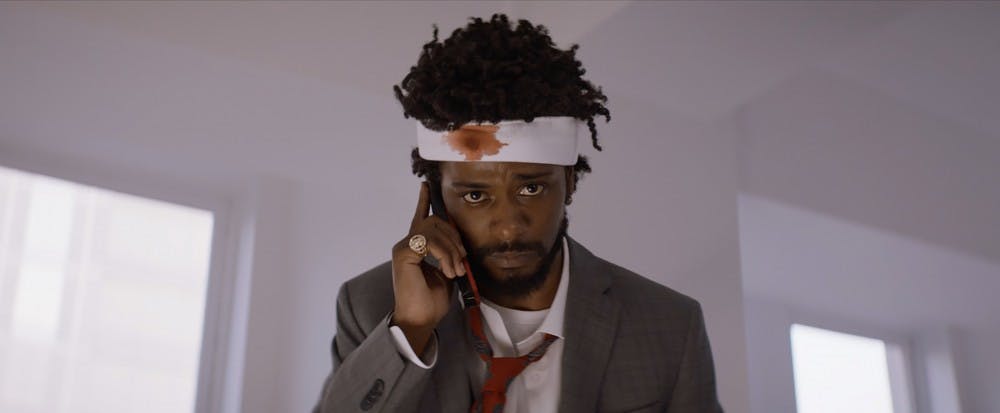“Sorry to Bother You,” the January 2018 feature film debut of political hip-hop-artist-gone-director Boots Riley, feels exactly like the film you’d expect from an artist whose rap group released the song “Me and Jesus the Pimp in a ’79 Granada Last Night.”
It’s utterly insane, riotously funny and brimming with more brilliant ideas than it knows how to handle. It's a shocking view of Riley’s anti-capitalist values.
Set in an alternate present-day Oakland, Riley’s film follows the oh-so-unsubtly named Cassius Green – or Cash Green for short – as he rises through the ranks of a telemarketing company after discovering a knack for sounding white on the phone. What follows is an invigorating and preposterous romp through a macabre world of wealthy socialites that vigorously slanders social systems and class structures as it goes.
First and foremost, “Sorry to Bother You” is a film about capitalism and other oppressive social structures; it’s a bold movie because of the verve with which Riley translates his ideas to the screen, and an essential one for its time because of the unflinching honesty and nuance he brings in equal measures.
It’s a movie brimming with whip-smart ideas about the experiences of being black and lower class, so much so that Riley occasionally feels like he’s struggling to maintain basic narrative coherence. But it’s also impressive in its complexity and in how brilliantly it accumulates and balances its ideas, stacking them like dishes on a woefully undersized serving platter.
He cements the Oakland setting early on as a point of convergence for the struggles of black and lower working-class Americans. Especially vital is the white voice gag, which begins as a pointedly humorous punch line, before it’s solidified as a brutally honest point of commentary. The humor, we observe, is merely a grace note.
It’s a stroke of genius on Riley’s part because he creates an implicit connection between the gag of Cassius’ white voice – which, for my money, miraculously never loses its kick – and the larger idea that black Americans must temper their blackness to find success or acceptance in white society.
Thus, when we see Cassius vigorously discussing the means of his success with a group of wealthy, white businessmen later in the film, there’s a clear understanding that that success, as well as the sanctity of their discussion, is predicated on his presented whiteness.
But he’s also not concerned exclusively with blackness, but rather with the degradation of millions of working class Americans by the ferocious beast of capitalism, and his script reflects that in creative ways. It’s imaginative and more than a bit nightmarish, invoking the same sort of dark futurism as select episodes of “Black Mirror.”
Riley creates a sense of detachment from reality early on, with cleverly established plot points like an agency offering glamorized enslavement, and a game show that cleverly mocks society’s fascinations with violence.
Occasionally, those plot points can feel clumsy — the latter feels especially shallow and irritatingly trite — but the careful development of socially charged satire is a repetitive narrative device for Riley here, and nearly always an effective one.
As the film progresses his imagination grows wilder and wilder, expanding with such vigor it recalls the progression of “Twin Peaks” from eerie crime saga to surrealist nightmare. There are points when that can feel alienating, but brilliant ideas and stunningly relevant commentary abound at every turn.
Another gag, equal parts nightmarish and brutally honest, visually literalized white society’s dual fetishistic and demonizing views of black culture and black bodies in a way that’s both purely brilliant and deliciously disturbing. It feels like a powerful proclamation by a clearly enraged Riley, but it’s one delivered not with fiery passion so much as cool precision. Like the rest of the film, it’s raucous and always funny – look out for a rap scene that puts every other comedic beat in the film to shame – but also pointed.
What feels so revelatory about “Sorry to Bother You” is that it’s a genuinely magnificent piece of entertainment — flagrantly irreverent in all the right ways and toward all the right things — but also a splendid and thoughtful piece of social commentary, cutting in its pointedness and searing in its intensity.
With his debut film, Boots Riley cements himself as an exciting new voice in film, and a bold political activist to boot. Perhaps it’s fitting that he’s so content stomping on problematic norms.



